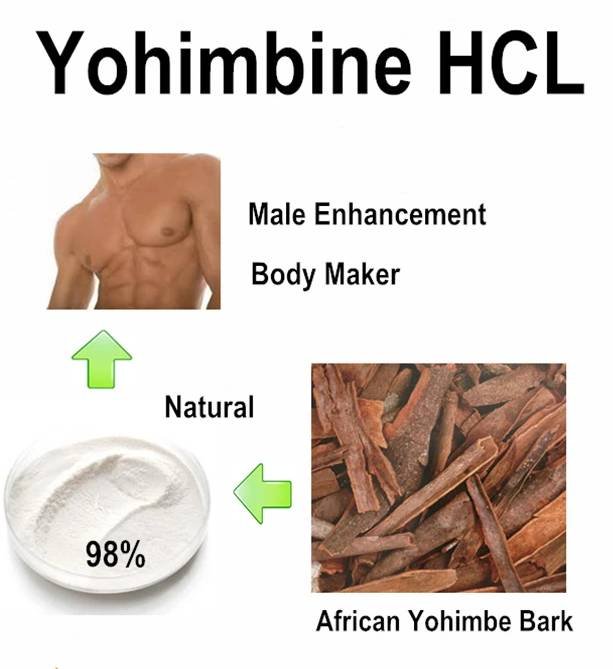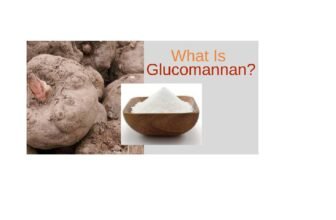Introduction
Many people suffer from conditions such as obesity, overweight, flabby composition of the body, accumulation of belly fat, erectile dysfunction etc. available allopathic medication often cause many harmful side effects, without being able to provide sustainable cures.
Recent trend to treat such disabilities has turned towards bioactive phytochemicals. Such botanical products have been found to give beneficial results for the above conditions. Many supplement manufacturers have jumped into the field of health supplements for reaping rich dividends.
The field has become especially lucrative as the bioactive phytochemicals do not come under regulatory bindings in the USA. It is not needed for the producers of such botanical products to give information regarding the active ingredients and their quantities in the supplement.

What is yohimbine hydrochloride
The bioactive phytochemical Yohimbine is one of the three active alkaloids which is found in the bark extract of Pausinystalia johimbe. Johimbe, which is also pronounced as Yohimbe, contains 6% alkaloids of which Johimbe constitutes 10 to 15%. This active alkaloid has found wide use in many erectile dysfunction curing supplements.
The Yohimbe bark extract has been used widely for treating erectile dysfunctions and as aphrodisiac as a part of the traditional medicines in West African Countries. But its use is not yet supported by solid clinical evidence.
Yohimbine Hydrochloride is the most active alkaloid which has been developed by the pharmaceutical industry and has been subjected to multiple clinical studies.
Previously Yohimbine Hydrochloride was used in small quantities of 5 to 10 mg in prescription medicines. But gradually the use of the alkaloid has become so rare that the pharmaceutical industries have stopped adding it in prescription medicines.
But the phytochemical has found wide uses in the food supplements where there are no regulatory bindings. It has been found through scientific studies that Yohimbine Hydrochloride is an alpha 2 adrenergic receptor inhibitor.
What is alpha 2 adrenergic receptor
Adrenergic receptors bind the norepinephrine, epinephrine and catecholamines. These neurotransmitters are released by the sympathetic nerves. It has a critical function in the regulation of blood pressure and various cardiac functions.
Many presume that such adrenergic receptors may inhibit erection. Since Yohimbine Hydrochloride is a blocker of adrenergic receptors, it would help in curing erectile dysfunctions.
It is also expected that the Yohimbine Hydrochloride would increase the blood flow to the genital region. This the phytochemical does by releasing nitric oxide to the bloodstream. Nitric oxide dilates the blood vessels making it wider allowing more blood to flow.
In spite of all such claims regarding the beneficial effects of yohimbine hydrochloride active alkaloid, many main line organizations do not recommend the alkaloid bioactive phytochemical for treating ED. This is due to the lack of sufficient evidence and some reported harmful side effects of the alkaloid.
Study of using single acute dose of yohimbine hydrochloride on sprint abilities
The participants of the study were 18 female sprinters of sound health. They were provided with two different doses of acute yohimbine hydrochloride and subjected to “supramaximal sprint trials”. Two groups were made.
One group was given 2,5 mg of yohimbine hydrochloride and the other was given corn starch ( Gluten free ). The second group was for placebo study.
Each group was given the doses 20 minutes prior to the exercises. After the necessary warm up, the participants were told to perform 3x15s of aerobic tests. Each session had a 2 minute break to enable recovery.
Blood samples were taken both prior to and after the tests. Following was measured:
- Lactate concentration of blood ( LA )
- Epinephrine ( EPI )
- Norepinephrine ( NE )
- Heart rate
- Rate of perceived exertion ( RPE )
Conclusion of the controlled blind clinical tests
- Ingestion of acute levels of yohimbine hydrochloride can result in ergogenic benefits
- Reduced Blood LA
- Reduced fatigue
- Increase in blood EPI
- Yohimbine hydrochloride can enhance sprint performance
Other observations of ingesting yohimbine hydrochloride
Yohimbine hydrochloride is rapidly absorbed by the human body.
- Yohimbine hydrochloride is also quickly eliminated by the body.
- Peak levels of yohimbine hydrochloride occur 20 to 30 minutes after ingestion.
- Yohimbine hydrochloride is eliminated within 60 minutes of ingestion.
- Due to the property of blocking the alpha 2 adrenergic receptors, the levels of blood epinephrine and norepinephrine is increased.
- It also increases the blood pressure, blood flow, alertness and heart rate.
- The relation between yohimbine hydrochloride ingestion with exercise performance is not conclusively established.
- Acute ingestion of yohimbine hydrochloride has been found to increase the oxygen-uptake-aerobics as well as cycling performances due to increase in skeletal blood-flow.
Side effects of Yohimbine Hydrochloride
- Headache
- Hypertension
- Panic Attack
- Tachycardia
- Anxiety
- Insomnia
- Nausea
- diarrhea
Pros And Cons
Pros for the active alkaloid Yohimbine Hydrochloride
- It is a bioactive phytochemical and hence beyond any regulatory requirements.
- The users do not need to produce prescriptions for buying the medicine
- It is claimed to cure Erectile dysfunction
- its promote weight loss
Cons Of Yohimbine Hydrochloride
- As the ingredient does not fall under the regulation of the controlling authorities, the manufacturers are not bound to give correct labeling. The users cannot know regarding the exact amount of the alkaloid, its side effects etc.
- Many countries such as Canada, Australia and the UK have already banned the use of Yohimbine Hydrochloride in any supplement.
- Some serious side effects may occur
Conclusion
Yohimbine is the bark of an African plant with green leaves which has been used by the people of the region for treating various ailments.
Lately this bioactive phytochemical has found wide use in health supplements particularly to cure ED. But due to lack of evidence confirming the beneficial results of the alkaloid and also due to reports of adverse side effects, gradually the pharmaceutical companies have eliminated the inclusion of the ingredient from the prescription medicines.
But the alkaloid is widely used as a bioactive phytochemical in supplements made from natural ingredients which do not require approval of authorities. Thus the users do not get information about the quantity of Yohimbine Hydrochloride in the supplement as well as the side effects of consuming the ingredient.
Clinical blind studies, however, have confirmed that by giving acute dosing short term performance can be improved. Even in repeated sprints the levels of performance as well as fatigue can be altered by ingesting acute doses of yohimbine hydrochloride.
But the effects would quickly subside with time.






